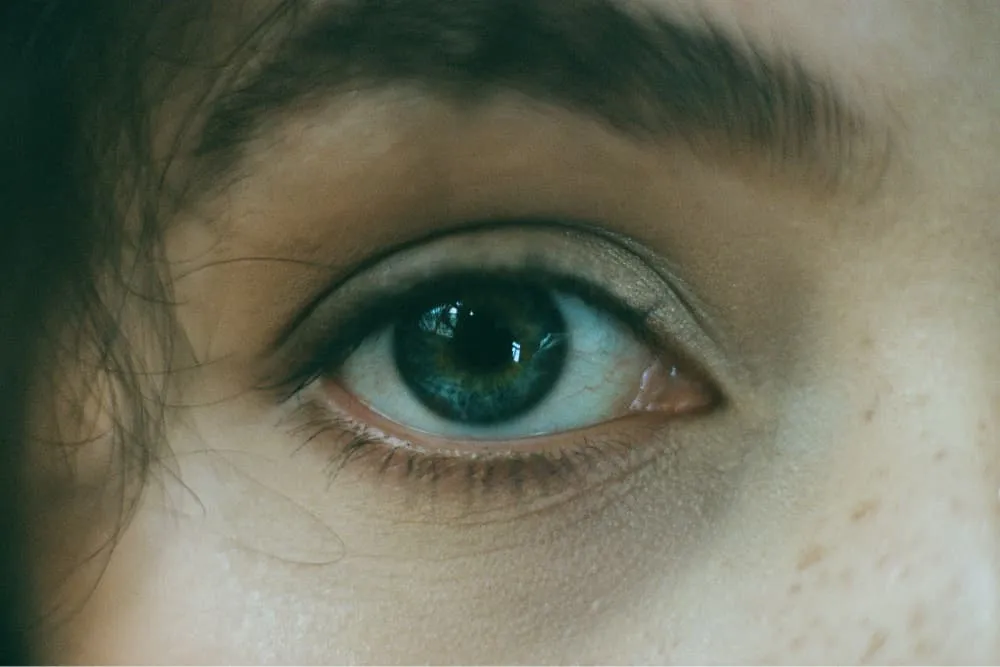What is Kluver-Bucy syndrome?
Kluver-Bucy syndrome is a rare behavioral condition that causes people to put objects in their mouths and experience uncontrollable sexual urges. It develops in individuals who injure the brain’s anterior temporal lobes as a result of trauma, brain tumors, brain infection, or degenerative brain disease. (1)
Diagnosing Kluver-Bucy syndrome
Medical professionals use the following criteria to diagnose Kluver-Bucy syndrome: (4)
- Hyperorality: a compulsion to examine objects using the mouth
- Hypermetamorphosis: an attentiveness to visual stimuli with a compulsion to touch stimulus
- Hypersexuality: preoccupation with sex and sexual behaviors
- Bulimia nervosa: an eating disorder where an individual binges food followed by purging
- Placidity: a calmness or absence of certain emotions
- Visual agnosia: difficulty recognizing or interpreting visual information
- Amnesia: a loss of memory
Signs & symptoms of Kluver-Bucy syndrome
The signs and symptoms of Kluver-Bucy syndrome tend to vary between adults and children. Adults with Kluver-Bucy may exhibit all or some of the following signs and symptoms:
- An urge to place objects in the mouth
- Extreme sexual behavior
- An inability to visually recognize objects
- Memory loss
- Difficulty understanding fear and anger
- Seizures
- Dementia
- Excessive eating followed by purging (bulimia nervosa)
In children, Kluver-Bucy may present itself as:
- Feelings of indifference
- Bulimia nervosa
- Lack of emotion toward family
- Frequent touching or holding of genitals
- Occasional pelvic thrusts
Effect of Kluver-Bucy syndrome
The symptoms of Kluver-Bucy syndrome can cause various health concerns. In children, the condition may also lead to delayed cognitive development. (5)
Short-term effects
- Bulimia nervosa
- Seizures
- Loss of consciousness
- Poor oral hygiene
Long-term effects
- Language challenges, such as remembering words or understanding complex sentences
- Trouble making new memories
- Difficulty learning new information and other learning impairments
- Delayed communication skills
- Increased sexual appetite
Related disorders
Kluver-Bucy is associated with herpes encephalitis, a viral brain infection that can damage the brain’s temporal lobes and cause Kluver-Bucy syndrome. Other related disorders include:
- Frontotemporal degeneration: Frontotemporal degeneration is the most common form of dementia in people 60 or younger. (3) It’s a progressive condition that may make it difficult for an individual to communicate with others.
- Alzheimer’s disease: Alzheimer’s disease is another common form of dementia. It affects a person’s memory and other mental functions.
- Korsakoff syndrome: Korsakoff’s syndrome is a chronic disorder affecting the brain’s memory system. It causes difficulties in learning new information and remembering recent events.
- Huntington’s disease: Huntington’s disease can develop at any time but is most common in people in their 30s or 40s. It is an inherited disease that causes degeneration in the brain’s nerve cells, leading to impulsive control challenges and a loss of awareness of one’s behaviors.
- Reye’s syndrome: Reye’s syndrome is most commonly diagnosed in children and teenagers and is caused by a viral infection, like the flu. The condition can cause confusion, irritability, seizures, and a decreased level of consciousness.
Treatment of Kluver-Bucy syndrome
Treatment for Kluver-Bucy syndrome focuses on symptom management and varies, depending on the person. Medical professionals may suggest a combination of therapies and medications.
Therapies for Kluver-Bucy syndrome
The development of an eating disorder is a common symptom of Kluver-Bucy syndrome. In most cases, people with Kluver-Bucy syndrome develop bulimia nervosa, which entails binge eating episodes followed by purging rituals. However, people with Kluver-Bucy syndrome also examine items with their mouths. In some cases, this can lead to people eating inedible objects, which is an eating disorder known as Pica. In either eating disorder, individuals may benefit from various types of psychotherapy, including:
- Cognitive-behavioral therapy (CBT): CBT helps individuals understand their behaviors and make changes. In the case of Kluver-Bucy syndrome, CBT can help with their eating disorder and other challenges they may face.
- Group therapy: A licensed therapist leads group therapy, in which individuals who share similar eating disorders or other conditions interact with and support each other. Group therapy helps individuals understand they are not alone in their struggles and learn from others’ journeys.
Medications for Kluver-Bucy syndrome
Doctors often prescribe medications in conjunction with therapy to help individuals manage symptoms. Drugs used to treat Kluver-Bucy syndrome may include mood stabilizers, antidepressants, antipsychotics, carbamazepine, and leuprolide. (4)
Understanding Kluver-Bucy syndrome
Kluver-Bucy syndrome is a rare condition that researchers are working to understand. Of the published case reports involving Kluver-Bucy Syndrome, 70.1% of people diagnosed were male with an average age of 25. (6) The most common symptom found in all cases is hypersexuality followed by a dietary change.
Living with Kluver-Bucy syndrome
People living with Kluver-Bucy syndrome experience a range of compulsions and urges they cannot control. In most cases, the urge is sexual. The person may make sexual advances toward a person who does not wish to engage. However, the person with Kluver-Bucy cannot recognize social cues or understand how their actions affect another person.
Another common urge for people with Kluver-Bucy is to examine objects by putting them into their mouths. Some people will place the object in their mouth and take it out. Others will attempt to eat the object, even if it’s unsafe to eat. The compulsion to place things in one’s mouth may manifest into bulimia nervosa. The individual will have binge eating episodes followed by purging behaviors.
It’s important to note that, with all the compulsions and urges, the person tends to feel a loss of control or an inability to recognize how their behaviors affect themselves and others. Since they don’t realize their actions’ effects, they may have trouble identifying when they should seek treatment.
History of Kluver-Bucy syndrome
The condition is named after Heinrich Kluver and Paul Bucy, who observed Kluver-Bucy syndrome in monkeys in 1937. (2) In 1955, two doctors named Terzian and Ore reported the first human case of Kluver-Bucy syndrome in a 19-year-old man who had suffered a seizure and later exhibited behavioral changes. Today, institutions such as the National Institute of Neurological Disorders and Stroke conduct research on Kluver-Bucy syndrome to better understand the disorder and possible treatments. (1)
How to help someone with Kluver-Bucy syndrome
A person with Kluver-Bucy may be unaware they need treatment for an eating disorder. If an individual notices the signs of bulimia nervosa in a loved one, it’s essential to discuss treatment options as soon as possible, as bulimia nervosa can lead to additional health complications. Some signs of bulimia nervosa to look out for are:
- Swelling of cheeks or jaws
- Fainting or dizziness spells
- Bruising or calluses on the knuckles
- Hiding food
- Skipping meals
- Wearing loose-fitting clothing
Kluver-Bucy may also cause individuals to place inedible objects in their mouths, so it’s vital to monitor if they are eating anything other than food.
The experts at Within Health understand the complexity of eating disorders, including bulimia nervosa associated with Kluver-Bucy syndrome. Within Health offers compassionate, evidence-based treatment personalized to each individual’s unique case. If you suspect you or anyone you know may be struggling from Kluver-Bucy syndrome, call our team today to learn about our virtual treatment programs.








